By Selome Hailu
SPOILER ALERT: This interview contains spoilers for Episode 3 of “The Sympathizer” on HBO.
Phanxine isn’t an actor.
Or so he says, though one might beg to differ after seeing his performance in “Love It or Leave It,” the third episode of HBO’s “The Sympathizer.” Though he’s no stranger to filmmaking, having directed and produced popular features such as the Vietnamese box office hit “Sweet 20,” Phanxine is a first-time performer. In fact, his involvement in “The Sympathizer” only came together after an audition he attended as a prank — more on that later.
Episode 2 saw the General (Toan Le) begin to suspect the presence of a North Vietnamese spy among the South Vietnamese community he began building in Los Angeles after the war, but he’s still far from realizing that it’s the Captain (Hoa Xuande) who’s betraying him. In an attempt to keep his cover, the Captain suggests that the Major (Phanxine) may be guilty. It’s a stretch, as the Major is a kindhearted man who spends most of his time eating in Chinatown and even tried to cut the Captain in on his under-the-table business selling expired Vietnamese candies that aren’t available in the U.S. (In the book, the character is known as the Crapulent Major.) But the General takes the bait, which is a relief for the Captain until the General inevitably also decides that the Major must be killed.
This should be an easy task for the Captain; after all, he’s a secret operative for the communists, and the Major is aligned with his capitalist enemies. But as the title of the series suggests, the Captain has come to care for the men he’s been embedded with, leading to more than a few stumbles as he carries out the hit. Pointing a gun at close range, the Captain orders the Major to turn around, but the panic in his voice and tears in his eyes lead the Major to a realization.
“You’re not the sort to shoot a man while you can still see his eyes. Especially if that man is the one who extended his hand from a plane and pulled you to freedom,” the Major says with a smile, having helped lift the Captain onto a flight from Saigon to L.A. as bombs went off behind them. The Major then whacks the Captain in the head with a durian he’d been planning to eat, causing the Captain to finally pull the trigger — but he the bullet lands in the Major’s stomach. It isn’t fatal. Waiting in a car nearby, Bon (Fred Nguyen Khan) rushes to help the Captain finish the job, and subdues the Major enough for the Captain to shoot him in the face after a drawn-out fight. The Captain leaves places a sticker on the Major’s body that says “America: Love It or Leave It” to make him look like the victim of an anti-Asian hate crime, though it’s also a painful reminder of the fallacy of the American dream for the one character who really believed in it.
Of the main cast of “The Sympathizer,” Phanxine is one of only a few who currently live in Vietnam — which made the decision to join the series complicated. Based on the Pulitzer Prize-winning book of the same name, “The Sympathizer” has never been published in Vietnam because of its depiction of the war, according to author Viet Thanh Nguyen. (Duy Nguyễn, who stars in “The Sympathizer” as Man, told Variety that reading the book made him realize he’d only been taught “only one side of the truth” while growing up in Vietnam.)
Phanxine spoke to Variety about making his acting debut, switching English dialogue to Vietnamese and why the world’s stinkiest fruit is a perfect metaphor for the politics of “The Sympathizer.”
How familiar were you with the book before you auditioned for the TV series?
I knew about the book, but actually hadn’t read it until going to the third-round audition, and my casting director said, “You should read the book before you go to meet with director Park [Chan-wook] and showrunner Don McKellar.” The reason I didn’t read the book is it was never published Vietnam, so I didn’t have the chance. When they had the open casting call, they said in the description for the Captain, “Nudity required.” I just wanted to say to my friends, “I signed up for an audition and you guys will see me naked on screen,” but they wouldn’t pick me — that was my plan. And then it went wrong, because they asked me to come back. I didn’t expect the role because I’m not an actor, but after several rounds, I kept reading the book and I wanted to do this.
When they offered the role, actually, it took me awhile to make the decision to take it. The book is very politically sensitive, but it’s an important project for Vietnamese people around the world.
What resonated with you as you read the book for the first time? What did you think of the Major?
There’s one scene where the Captain comes to Chinatown to visit the Major to ask for advice, and the Captain’s just watching this guy, feeling disgust about this fat guy eating while talking. The Major looks at Captain and says, “Oh, you didn’t eat that part. Can I have that?” I connected with that, in a way — I really enjoy food, and I think it tells a lot about the character.
That scene never ended up in the series, but I feel for the Major. He’s someone who always tries to think positive. A lot of people say [to him], “How come you leave your daughter and bring your mother to America?” Usually people will say it’s better to bring your daughter, but I really love my mom. I totally understand a man who puts his mom above anything else. It still traumatizes and haunts him, but when he moved to America, he tried to move on and have a better life. He smiles, takes responsibility for himself and protects his family. He also takes the Captain under his wing and into the business — even though it’s a dirty business, he thinks, “I’m helping my brother.”
I look at him, and I look at another character, the General. He comes to America, brings the whole family, but still, he suffers from the past. He cannot move on. It’s the opposite of the Major. Because of that, the Major becomes the victim of the people still holding onto the past. They look at him, and they’re jealous of him, like, “Why can that guy be happy like that?”
The major is a Chinese man in the South Vietnamese military. Being Vietnamese yourself, did that impact your performance?
Even though my character is Chinese, we never really talked about that. Because in Vietnam, a lot of my friends are part Chinese, but I don’t really see them as Chinese. Especially back in the day, they blended into one of the 54 [ethnic groups recognized by the Vietnamese governments]. It’s different — in America, you see the diversity of races and ethnicities, but in Vietnam, we don’t. Everyone just blends. Some people look at me and say I look Chinese; a lot of time Vietnamese people look like some other country — Indonesian, Thai, Chinese. It’s part of the portrait of Vietnam and Vietnamese people.
What was it like to shoot your final scene where the Captain murders the Major?
When I did the audition, my character spoke Vietnamese most of the time, but then they decided to change to more English. So the scene was written in English, but I went to Don McKellar and I asked him, “Can I change the dialogue into Vietnamese?” At that critical moment, I had to speak in Vietnamese, because that’s how I can connect with my brother. That’s where I fight for my life. It’s the only way to make him remember we are not American. We are Vietnamese, which means we are blood brothers. Hoa, who played the Captain, when I started speaking in Vietnamese, he cried. It made me so emotional.
Then we filmed the scene at the airport way later. When they first did the blocking, the General was the one who came out to take the Captain on the plane. I asked director Park, “Remember my line? It should be me.’ Because that builds a connection, and will make the Captain feel really guilty about what he did.
You mentioned that it was a difficult decision to join the series because of political sensitivities in Vietnam. Why did you decide to say yes? Are you concerned about how the show will be received?
I see my character as safe in a way, because he shows a good side of Vietnamese men. A lot of people have a stereotype about Vietnamese men: They’re weak, always depressed, trying to control their families. But my character is a family man who really cares about his mother, his wife and his newborn. He goes out to work and puts a lot of pressure on himself but always smiles to show the world, “I’m okay.”
The show overall is politically sensitive — not just for Vietnamese people in Vietnam, but also for Vietnamese Americans. It’s a controversial topic.
In the series, my character eats durian. I always say that this show is like a durian — people either really love or really hate durian, you know? And I love durian.
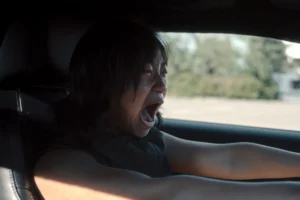

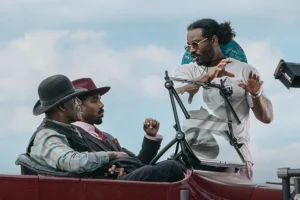
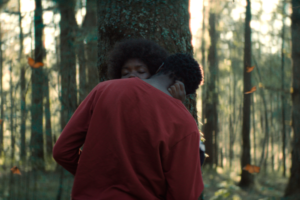
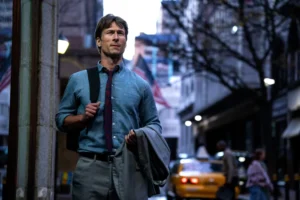
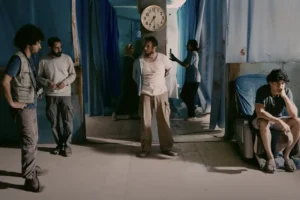
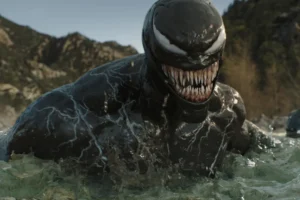
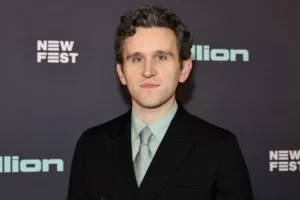
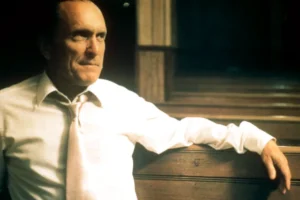


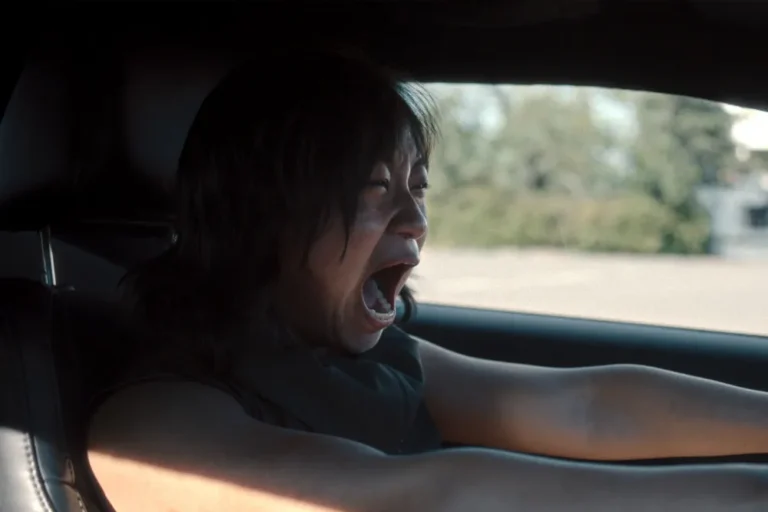
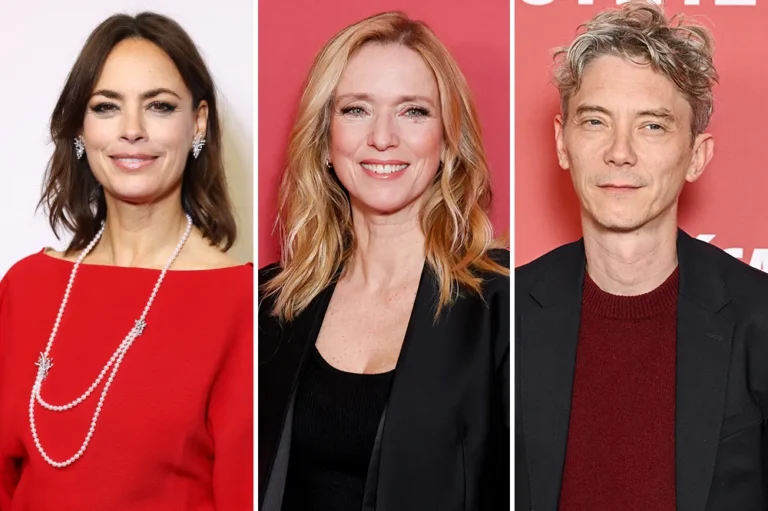
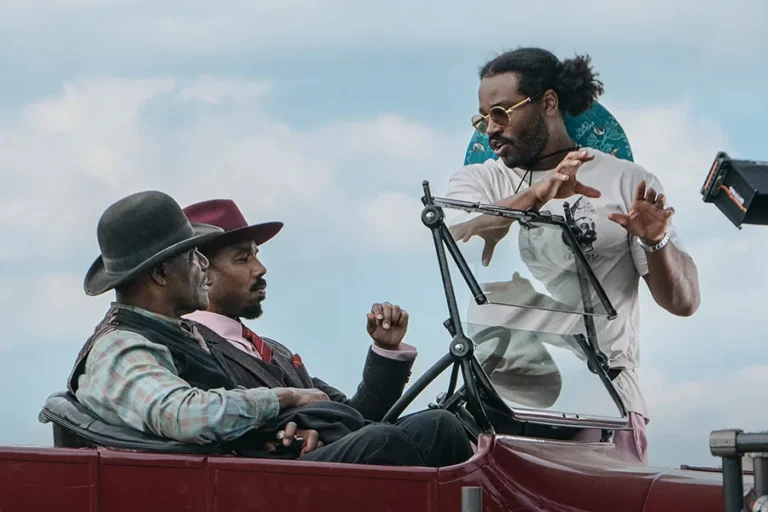
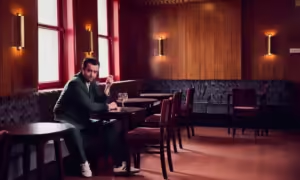

+ There are no comments
Add yours